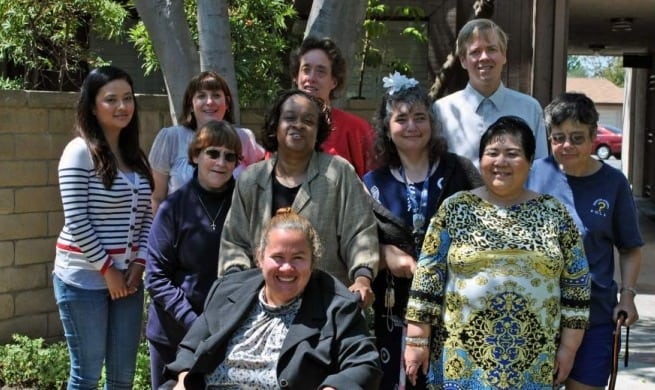
Accessing services at Westside Regional Center
If you have a child with special needs, you likely have been directed (or soon will be) to your local Regional Center. Don’t ignore this recommendation. The Regional Center System exists to help California families impacted by developmental disabilities find support and resources, and access lifetime services if needed. California is one of the only states to offer this type of assistance, beginning in the 1960s at the urging of dedicated parents.
The legislation they spearheaded, called the Lanterman Act of 1969 – and the Regional Centers that help carry out its mission – is still the key to accessing a variety of support that can make a huge difference in your family.
Regional Center Services
The Regional Center provides countless services and resources to families parenting children and adult children diagnosed with developmental disabilities, most of them free of charge and beginning soon after diagnosis.
Services offered include:
- Information and referral
- Assessment and diagnosis
- Family and individual counseling
- Lifelong individualized planning and service coordination
- Purchase of necessary treatment services as indicated in the child’s IFSP or IPP (e.g., ABA, speech therapy, Occupational Therapy, adaptive skills training, toilet training, vocational training) and coordination of care
- Resource development
- Outreach
- Assistance in finding and using community and other resources
- Advocacy for the protection of legal, civil and service rights
- Early intervention services for at-risk infants and their families
- Genetic counseling
- Family support
- Transportation services
- Respite
- Diapers
- Planning, placement and monitoring for 24-hour out-of-home care
- Training and educational opportunities for individuals and families
- Community education about developmental disabilities
- Financial assistance with co-payments, coinsurance and deductible costs associated with behavioral health services funded by private health insurance
Accessing Services
Regional Centers provide services to infants and toddlers (birth to 36 months) via the federally funded Early Start program, to children and adults (ages 3 and older) via the state-funded Lanterman Act, and to individuals at risk for having a child with a developmental disability.
The first step to accessing Regional Center services is to schedule an Intake Assessment to determine whether your child qualifies. Your intake counselor will gather information about your child, including developmental history and social, medical, and psychological data. If your child has not yet been diagnosed, a psychological evaluation will be completed.
Children ages 3 and under are eligible for Early Start Regional Center services if they show evidence of delay in cognitive, communication, social or emotional, adaptive, or physical/motor development (including vision and hearing) development. Those under age 2 at the time of referral must show a 33 percent delay in one or more of these areas to be eligible. Children ages 2 to 3 at the time of referral must show a 50 percent delay in one or more areas, or a 33 percent delay in two or more areas, to be eligible. Kids ages 3 and younger who have an established risk of a condition of known cause that gives them a high probability of delayed development are also eligible for services.
Children over age 3 and adults are likely eligible for services if they have been diagnosed with autism, cerebral palsy, intellectual disability, epilepsy or any other diagnosis similar to intellectual disability or requiring a similar level of treatment. The disabling condition must have been present before the person turned 18 and be a lifelong condition. The disability must also cause the person significant limitations in three or more of the following areas:
- Self-care
- Receptive and expressive language
- Learning
- Mobility
- Self-direction
- Capacity for independent living
- Economic self-sufficiency
If a child is found eligible for Regional Center services, an Individualized Family Service Plan (IFSP) will be created. Adults who are found eligible participate in developing their own Individualized Program Plan (IPP). For those who aren’t found eligible, the Regional Center team will make appropriate community referrals and explain the appeal procedure.
Ongoing Services

North Los Angeles County Regional Center
Often, services begin with parents attending parent education classes hosted by the Regional Center. Soon after, the Regional Center may contract with one of its pre-screened vendors (who they have determined can provide evidence-based, quality treatment) for your child’s ongoing treatment. As a contingency of paying for this treatment, your Regional Center will likely require you to actively participate in your child’s treatment services to help ensure that you are prepared to address behavior challenges that occur outside of treatment.
Approximately every 3-6 months, the IFSP or IPP team will meet to assess how things are going. The Regional Center will require evidence of progress in order to continue funding for your child’s treatment. You can generally expect that they will offer more intensive (high-frequency) for only a limited time, and will move to lower-intensity treatment as your child progresses and your family becomes increasingly competent with teaching skills and managing challenges.
If your child has been accessing Early Start services, he or she will be reassessed just prior to his or her third birthday to determine eligibility for ongoing services. If your child is found eligible, there should be no interruption of services. If your child is not found eligible, the Regional Center will provide referrals and will assist you with accessing educational services through your school district. Transitioning away from Regional Center services can be difficult, so be sure to access the additional support services the center recommends, and remember that you may appeal the decision if you question it.
Disagreements and Disputes
If you disagree with your Regional Center’s assessment of your child’s needs and the decisions made based on that assessment, there is an appeal process in place to help.
Any notice of denial, change or termination of services must be presented to you in writing. This starts the timeline of the appeal process. For denials relating to any new service request, the Regional Center must notify you within five days of the decision. For changes in or termination of services, the Regional Center must notify you 30 days in advance. The Regional Center must include an appeal form with the notice in case you wish to contest the decision.
If you decide to challenge the decision, you must file the appeal within 10 days of the date posted on the written notice in order for your child to continue receiving services during the appeal process. If you are challenging a decision for a new service, then you have 30 days to appeal. If you do not receive the written denial notice, contact your case manager immediately. If the denial notice still does not arrive, you may need to file an administrative complaint with a letter of intent to appeal in order to ensure your timelines are met and your child’s new or continuing services are not jeopardized.
Political Activism to Keep Services Available
As state funding for social services continues to be stretched to its limit, with an increasing number of children being diagnosed each year, parents must stay attentive and active in Sacramento. The Lanterman Act was the result of parents organizing and demanding that legislators do more for our state’s children. Every service offered today by Regional Centers is the direct result of those parents’ efforts in the 1960s.
No longer are children with disabilities institutionalized and forgotten by our communities. Services and support for children and adults with developmental disabilities have never been better, but parents must not take these benefits for granted. Our children’s services are not immune to economic and political trends. So let’s keep a collective eye on Sacramento and help ensure that our children continue to experience the true intent of the Lanterman Act and receive “an array of services and supports … which is sufficiently complete to meet the needs and choices of each person with developmental disabilities, regardless of age or degree of disability, and at each stage of life, and to support their integration into the mainstream life of the community.”
Additional Resources:
- Directory of Regional Services

- Department of Developmental Services
- A Consumers Guide to the Lanterman Act
- Rights Under the Lanterman Act
- The Association of Regional Center Agencies
- State Council Developmental Disabilities
- Disability Rights Advocates
- California Disability Community Action Network
Jennifer Harris, Ph.D., LMFT, BCBA-D, is the owner and Executive Director of FirstSteps for Kids Inc., an ABA treatment center serving children diagnosed with autism and related disorders throughout California. In addition to her work at FirstSteps, Dr. Harris and her husband are also the very busy parents of two children, ages 11 and 13.



























